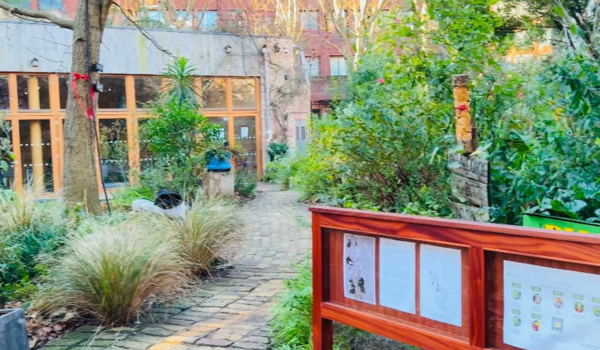
Beyond formal services: how food, faith, and storytelling are building community resilience in London

Photo: Ben Wright, Ethical Creatives
In August 2025, Thrive LDN launched a Grassroots Community Resilience Pilot with funding from the Mayor of London, in collaboration with Peace Collective and supported by King College London’s Centre for Society and Mental Health.
Background and purpose
The pilot was developed following a review of mental health and wellbeing resources for London’s communities affected by displacement, conflict, and crisis. The review, conducted by Peace Collective, identified that vital support often occurs outside of formal services, within trusted, informal community settings such as shared meals, cultural events, and faith groups. These activities serve as powerful, accessible entry points for wellbeing support.
As part of the response to the report, the pilot was established to offer up to £1,500 to sustain existing work by grassroots organisations. The fund was designed for London-based small charities, informal community groups, and grassroots organisations with an annual turnover of less than £300,000. The funding aims to support activities that foster connection, belonging, and emotional wellbeing for people affected by war, crisis, or displacement.
Selection process
The response to the call for Expressions of Interest was substantial, demonstrating the extensive and critical work being undertaken by community-led groups across the city. The high volume and quality of applications underscored the significant need for this type of funding and approach to supporting wellbeing.
A diverse panel was convened to review the submissions. The panel’s role was to assess each application against the pilot’s criteria, including community relevance, focus on wellbeing, and feasibility.
The process involved collaboration with partners, including the Greater London Authority, SOAS University of London, community campaigner, Abiola Okubanjo, and the Centre for Society and Mental Health at King’s College London. This ensured that applications were reviewed from a mix of professional, community-based, research, and lived experience perspectives, particularly with the panel including three members of The Centre’s Lived Experience Advisory Board (LEAB).
Given the strength of the applications, the panel faced a difficult task in selecting from the many deserving initiatives. Final decisions were based on the panel’s scoring and moderation, with additional consideration by the programme team for ensuring a diversity of settings, communities, and geographical spread across London. In total, 12 projects will be supported by the £18,000 pilot fund.
Themes from the funded projects
While the 12 funded projects are distinct, their work illustrates several key themes about how community resilience is built and sustained in London.
The initiatives are tailored to specific communities, providing dedicated support for young people, women, parents, and elders. Many are designed by and for diaspora and faith communities, including those with Albanian, Afghan, Eritrean, and Palestinian heritage. This ensures support is culturally grounded and directly relevant to the lived experiences of participants.
A central theme is the use of relational and creative methods to foster wellbeing. Funded activities include storytelling sessions that bring together new arrivals and local residents, peer support programmes for refugee and migrant women, and nature-based activities for young people affected by conflict. Other initiatives use physical activity, community festivals with shared food and music, and faith-based workshops to reduce isolation and strengthen social connections. This approach validates the findings of the initial review: that effective support is often embedded in everyday cultural and social life rather than being explicitly labelled as a mental health service.
Next steps
As part of this pilot, short case studies of the supported projects will be collated and shared to help share learning and inspire others. This work will be a collaboration between Thrive LDN, Peace Collective, and The Centre for Society and Mental Health. The case studies will be featured on the Thrive LDN website to spotlight examples of how community-based activities can improve mental health and wellbeing.
These organisations represent the vital, often unseen, infrastructure that supports community wellbeing citywide. Their work exemplifies how local, trusted groups create safe spaces where people feel connected, supported, and heard.
We hope this pilot becomes a small but important first step at recognising this and a project in which further funding and support may be scaled up over time.